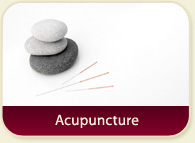Trying to give up smoking?
Even though you have made a conscious decision to stop smoking the association with certain situations will take time to disappear. Before starting treatment, become aware of when you smoke and why. Once you have identified the reasons for smoking and your triggers it will become much easier to break the smoking habit.
Acupuncture will help break the physical addition to nicotine, but the psychological addiction is much harder to break. This is because smoking is likely to have become deeply ingrained over many years and has therefore become an integral part of many emotional occasions. Sad or unhappy, bored or having to concentrate hard, happy and relaxed with friends – cigarettes are likely to have played a part in almost all of these situations.
Sometimes we ascribe too much power to cigarettes. They don’t have the power to change anything or to make things better. Freud once said “Sometimes, a cigarette is just a cigarette”.
However, to stop and stay stopped you do need a strong and focused mind. The associations that have been established with smoking are likely to outlast the physical addiction to nicotine. Remembering that you are in control, together with acupuncture and a positive mental attitude, smoking cessation is possible.
Smoking is not just a bad habit but also a complex addiction. It is believed that nicotine exerts its powerful addictive effects by altering two chemicals in the brain – dopamine and noradrenalin – known as neurotransmitters. Within seven seconds of inhaling, a concentrated dose of nicotine is delivered directly to the brain, producing a nicotine rush. Many smokers interpret this rush as one of pleasure, but in reality the pleasure is misunderstood. It only appears pleasurable because it satisfies the craving created by the last cigarette. After smoking a cigarette, withdrawal can set in as quickly as 15 minutes later. Despite its addictive nature, nicotine doesn’t hang around in the body long (about 48 hours) once you’ve stopped smoking.
Acupuncture helps to stop smoking by eliminating cravings, reducing withdrawal symptoms and relieving tension. It also builds energy and gives a sense of well being. An acupuncture treatment can change levels of chemicals in the body and regulate the nervous system. The treatments trigger the release of natural chemicals including endorphins, which reduce a smoker’s cravings, ease withdrawal symptoms, and increase relaxation.
How Does Nicotine Act in the Brain?
Your brain is made up of billions of nerve cells. They communicate by releasing chemical messengers called neurotransmitters. Each neurotransmitter is like a key that fits into a special “lock,” called a receptor, located on the surface of nerve cells. When a neurotransmitter finds its receptor, it activates the receptor’s nerve cell.
The nicotine molecule is shaped like a neurotransmitter called acetylcholine. Acetylcholine and its receptors are involved in many functions, including muscle movement, breathing, heart rate, learning, and memory. They also cause the release of other neurotransmitters and hormones that affect your mood, appetite, memory, and more. When nicotine gets into the brain, it attaches to acetylcholine receptors and mimics the actions of acetylcholine.
Nicotine also activates areas of the brain that are involved in producing feelings of pleasure and reward. Recently, scientists discovered that nicotine raises the levels of a neurotransmitter called dopamine in the parts of the brain that produce feelings of pleasure and reward. Dopamine, which is sometimes called the pleasure molecule, is the same neurotransmitter that is involved in addictions to other drugs such as cocaine and heroin. Researchers now believe that this change in dopamine may play a key role in all addictions. This may help explain why it is so hard for people to stop smoking.
Acupuncture Smoking Cessation Program
Support person: The decision to stop smoking can elicit uncomfortable emotions. Ask someone who is available to you the next few weeks to act as a sounding board and provide encouragement when needed.
Affirmation: An affirmation is a positive statement repeated often to create desired changes in your life. Repeating the affirmation helps not only to remind you why you are no longer smoking but imprints a new image of health so that the body can then produce health e.g. “I am a non-smoker. I make healthy choices in my life”.
Setting Boundaries: Set up contracts with other smokers to refrain from smoking in your presence. This includes spouses. When possible stay away from smokers until you feel more confident with your non-smoking health status.
Drink Water: Research shows that dryness causes craving. Sip water frequently throughout the day.
Avoid Coffee: Research shows that coffee causes cravings and dehydrates the body.
Food cravings: Eat a lot of carrots, celery and other vegetables throughout the next few days. Refined sugars upset blood sugar levels, which can aggravate smoking-withdrawal symptoms. Sugar substitutes such as nutrasweet are sweeter than sugar and cause further sugar cravings.
Manage cravings: Cravings feel like they will last forever but actually fade in a few minutes. Plan what you will do during a craving. E.g. take your herbs or remedies, repeat your affirmation, breathe deeply, walk to another place, dance or call your support person.
Cravings can occur frequently during the first few days after stopping smoking. A craving increases in intensity over a period of 3-5 minutes and then begins to subside.
Tips for dealing with cravings – the 4 Ds
Delay at least 3 minutes and the urge will pass.
Drink a glass of water or fruit juice (sip slowly)
Distract yourself. Move away from the situation.
Deep breathe. Breathe slowly and deeply. It will help you
Contact us



